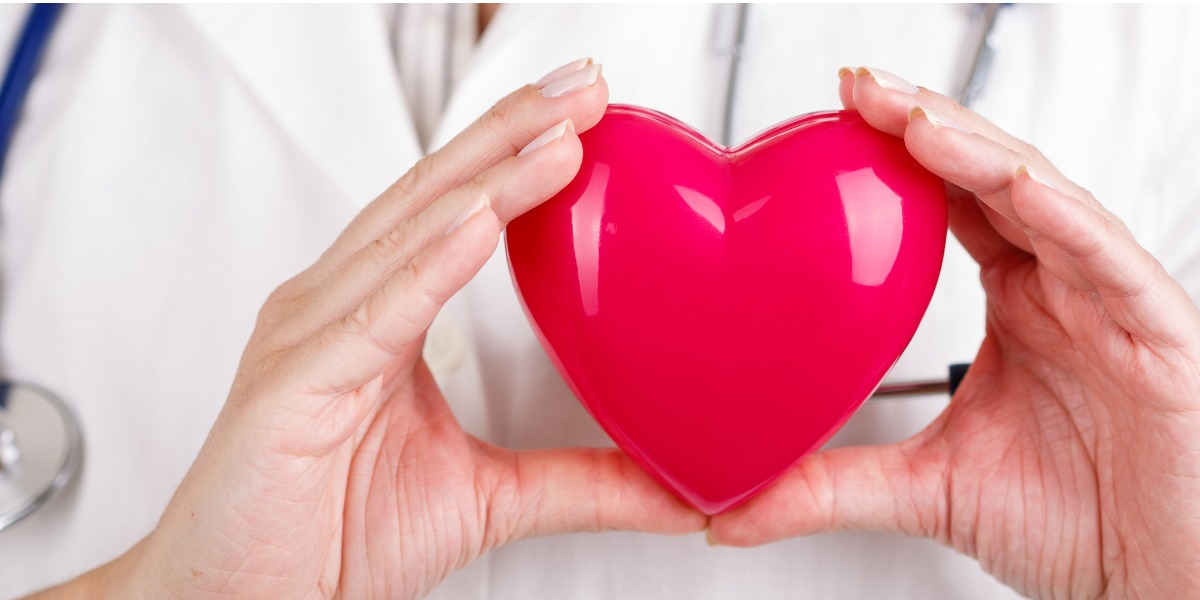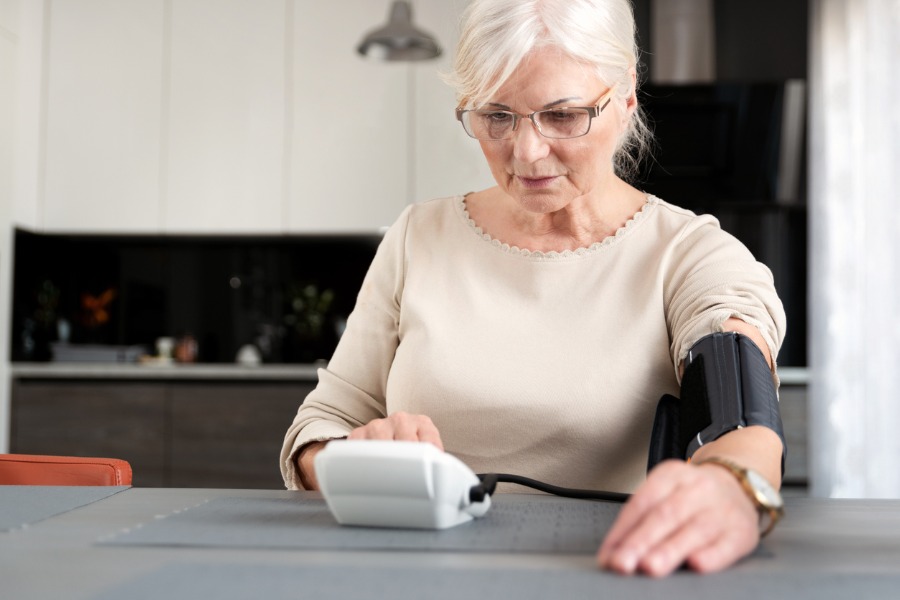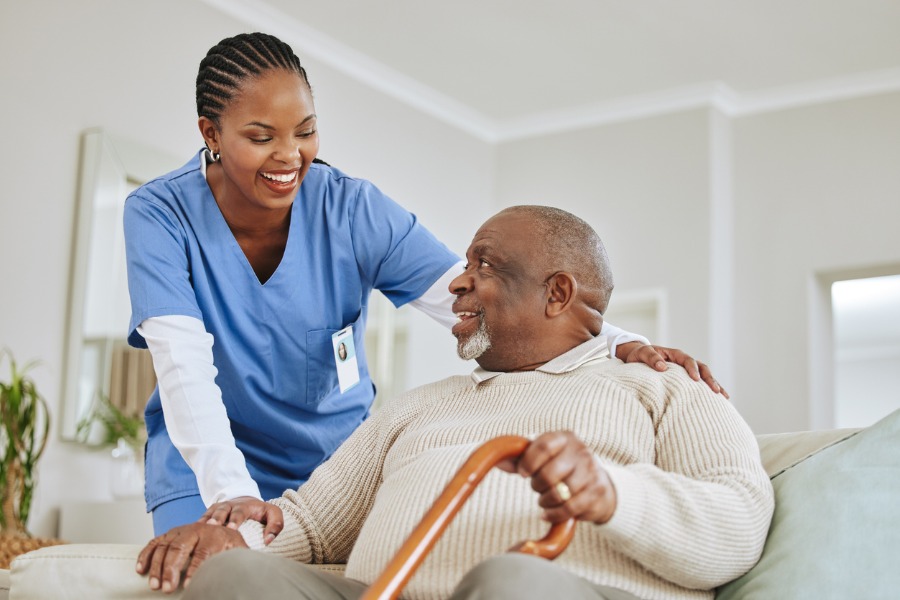
February is American Heart Month. Salus is participating by providing you with tips to help you understand, cope with and enjoy a higher quality of life after a diagnosis of heart disease.
Today’s tip is about heart attack recovery. What’s the best path toward recovery, and how can you work to improve your quality of life while you recover?
Heart Health Recovery

Recovery from a heart attack is challenging. You may be asked to make some major lifestyle changes, there are doctor’s visits to follow up with, and there are concerns about the future and your quality of life. All of these things are normal, but something that many individuals forget is how they impact mental health. Understanding the impacts and learning how to better address them puts you on a road to a healthier recovery.
“A heart attack is a major life event,” Dr. Pozuelo, psychiatrist, states. “When your life gets disrupted in a major way, it’s understandable and even expected that you will experience some strong emotions.”
How can you minimize your changes of experiencing sadness, depression and anxiety following a heart attack? The answer usually comes down to self-care and leaning on your support system.
Self Care After a Heart Attack

After a heart attack, it’s important to make prescribed lifestyle changes and take self-care seriously. Doing this can help to prevent a reoccurence and maximize your chances for a full recovery. Taking these steps can help.
Follow your medication plan: Understand what medications you have been prescribed, when you are supposed to take them and for long you’re meant to take them.
Actively participate in rehab: If your doctor prescribes physical or occupational therapy, take this seriously. Follow through with your exercises, and keep up with your therapy visits. At home therapy often makes this more convenient.
Let yourself experience emotions: Give yourself permission to grieve, get angry or even cry. If emotions feel out of control, mention your struggles to your doctor. If necessary, seek support from a licensed therapist or psychiatrist.
Stay informed: Know your numbers. Blood pressure, cholesterol and other important metrics can help you understand how your body is recovering and what extra support you might need. Ask questions, and review this information with your doctor regularly.
Understand the warning signs: Even with your best efforts, a repeat heart attack is a possibility. Should this occur, getting help immediately is essential. So, make sure you understand the warning signs. They include pressure on your chest, arm, abdominal and jaw pain, extreme sweating, shortness of breath, and vomiting or dizziness, among others. Discuss warning signs of a heart attack with your doctor to gain a clearer understanding of them.
Heart Attack Recovery Support System
Following a heart attack, your doctor’s support is vital. This is the person who will guide the creation of your plan of care and follow up with you to ensure you’re taking the necessary steps in order to maximize your chances of recovery.
Your doctor may recommend certain services that can also become an important part of your recovery efforts.
Home Health Care

Home health care is a service provided after a hospital discharge that includes medical care necessary for recovery. Your home health services will be monitored by a registered nurse, and they may include the services of a physical or occupational therapist. Typically, all care is provided at home, and visits are coordinated to fit your schedule.
Home health care after a heart attack is statistically proven to optimize your recovery and lower your risk of rehospitalization. Additionally, home health nurses often provide family caregiver training, ensuring that your loved ones are assisting you with care in the safest and most effective way possible.
Your home health nurse and therapist will coordinate with your primary care doctor and work with you and your family to develop a safe and effective plan of care. This, too, makes recovery easier and ensures that you have the support you need to fully enjoy life after a heart attack.
Home Care

In addition to home health care, some patients benefit from home care support. This is non-medical support and supervision. It is provided with the goal of making you and your home safer and more comfortable.
Home care support provides you with support in taking care of yourself after a heat attack. This results in many patients leading a fuller life and avoiding complications following a heart attack. Taking care of yourself can mean:
- Having support so you can get dressed every day
- Receiving assistance in following your doctor prescribed meal plan
- Knowing reliable transportation is available to get to doctor’s appointments
- Medication reminders so you remember to take the prescriptions necessary for your health
- Physical support with mild exercise such as walking every day
- Company throughout the day so you avoid feelings of loneliness and isolation
Heart attack recovery is difficult to go through, but your life is far from over. Remember the importance of self-care, follow your doctor’s advice, and find professional home care and home health support.
Salus Homecare of San Diego is here to assist with both your home care and home health needs. Our professional team seamlessly provides the right level of care in your home, and we’re here to continue to support you should your needs increase or change.
Reach out, let’s discuss your recovery goals, and we’ll work together to make them a reality.

